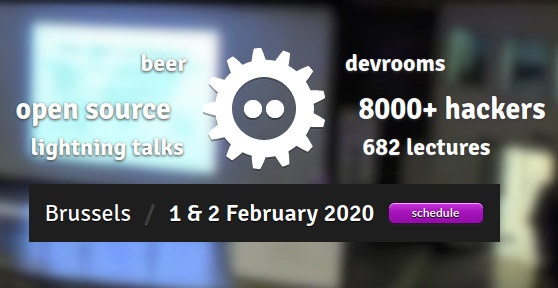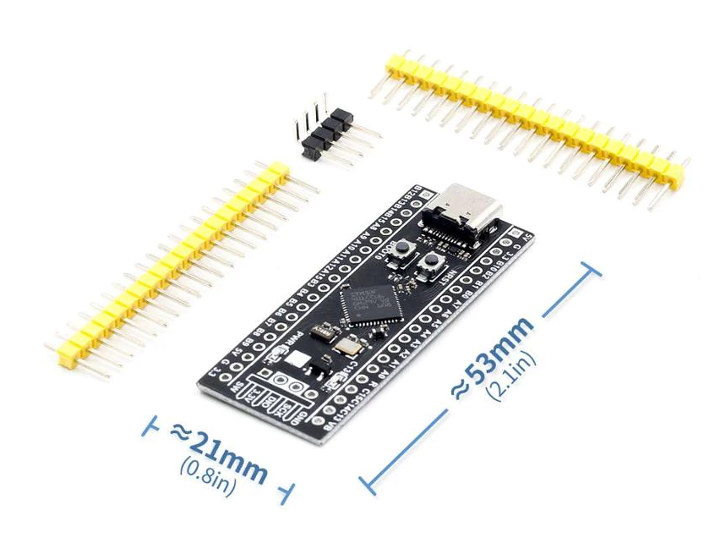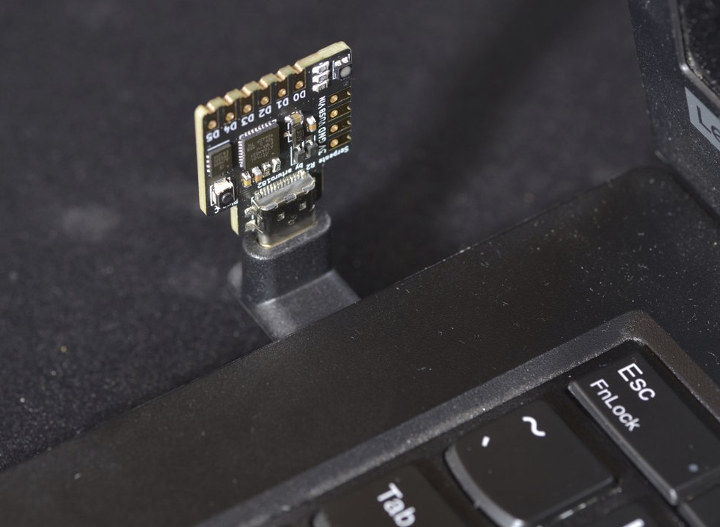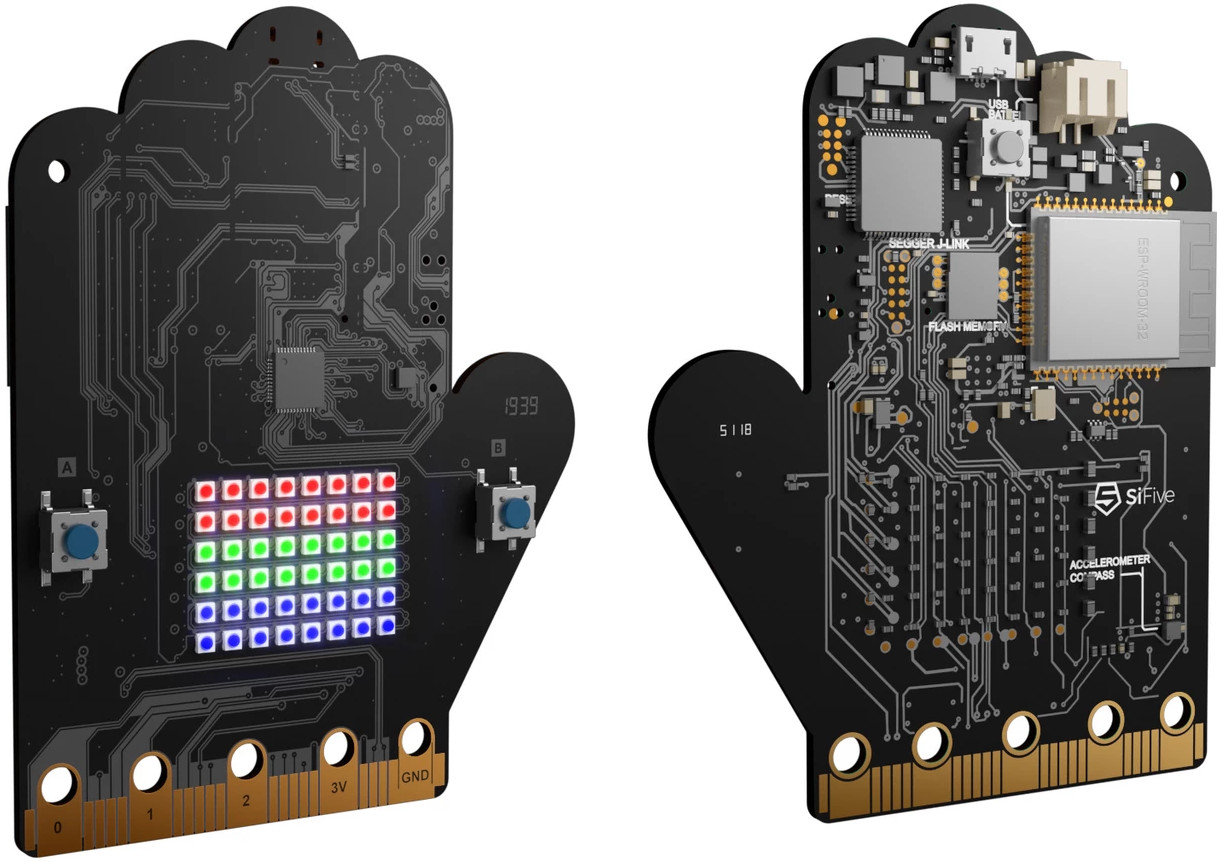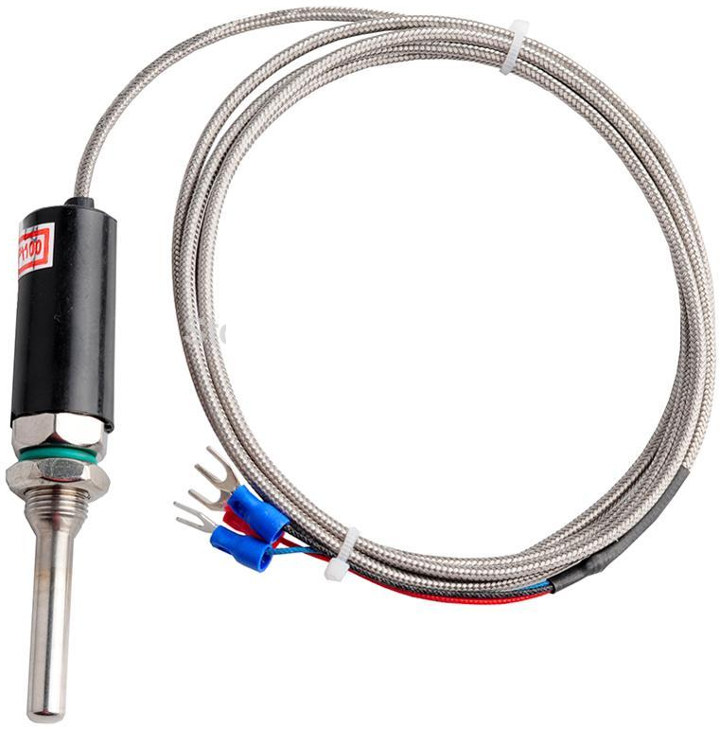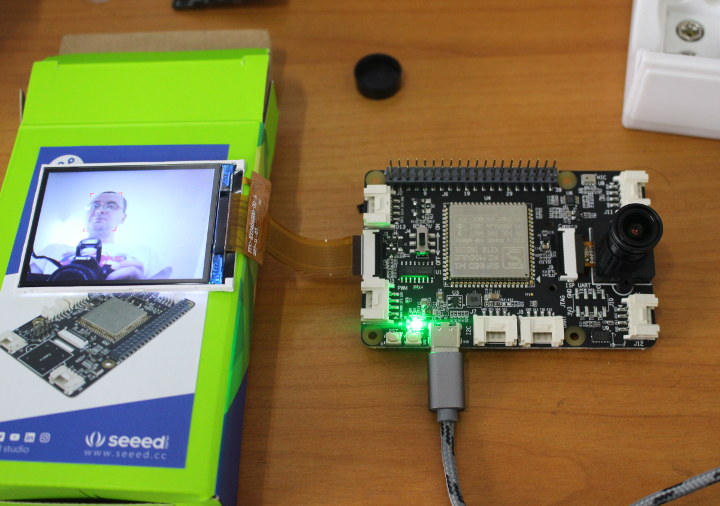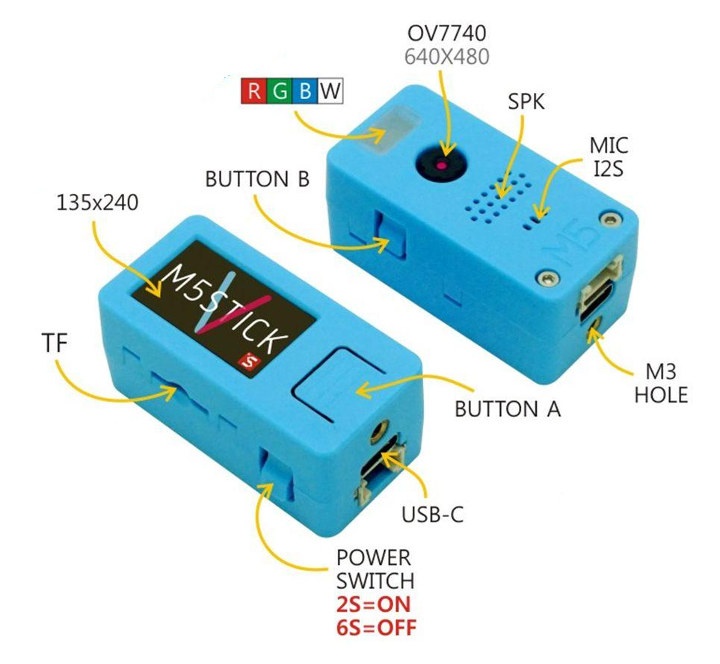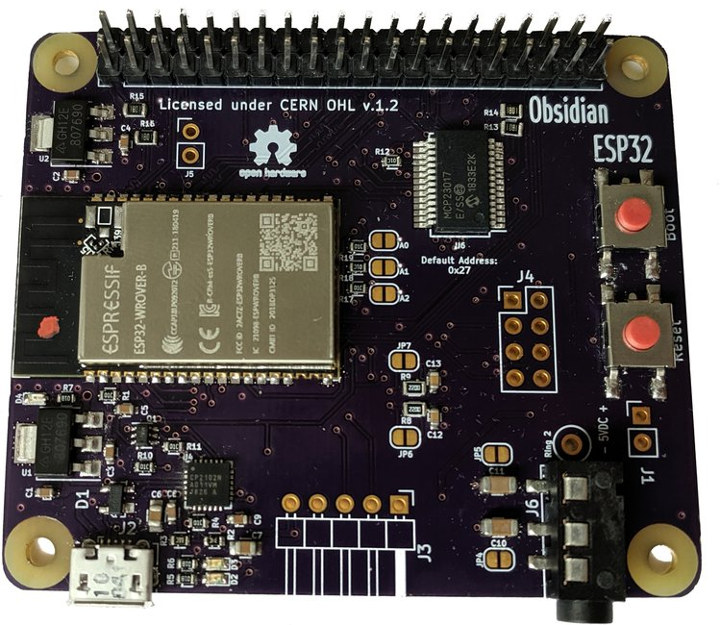We wrote about IoT devroom call for proposals for FOSDEM 2020 a little while ago, and as the free open-source developer meetup is getting closer, FOSDEM 2020 organizers released the schedule. So I’ll look at some of the talks in the relevant devrooms such as the Internet of Things, hardware enablement, Embedded, Mobile and Automotive, as well as RISC-V and others to compose my own little virtual schedule for the 2-day event. Saturday, February 1 10:30 – 10:50 – How lowRISC made its Ibex RISC-V CPU core faster – Using open source tools to improve an open-source core – by Greg Chadwick Ibex implements RISC-V 32-bit I/E MC M-Mode, U-Mode, and PMP. It uses an in-order 2 stage pipe and is best suited for area and power-sensitive rather than high-performance applications. However, there is scope for meaningful performance gains without major impact to power or area. This talk describes work […]
$3 STM32 “Black Pill” Board Features STM32F4 Cortex-M4 MCU, Optional SPI Flash
STM32 “Blue Pill” is a popular and cheap (>$2) development board based on STMicro STM32F103C8T6 Arm Cortex-M3 microcontroller and programmable with the Arduino IDE. I’ve just been informed that the board got an upgrade of sorts with a “Blue Pill 2” board featuring either STM32F401CCU6 or STM32F411CEU6 Arm Cortex-M4F microcontroller, and a USB Type-C port for power and programming. It’s black, so instead, I’ll call Black Bill as some others appear to do. Specifications for the Blue Pill & Black Pill boards (new features in bold): MCU (one of the other) STMicro STM32F103C8T6 ARM Cortex-M3 MCU @ 72 MHz with 64KB flash memory, 20KB SRAM. STMicro STM32F401CCU6 Arm Cortex-M4F MCU @ 84 MHz with 256 KB flash, 64KB SRAM STMicro STM32F411CEU6 Arm Cortex-M4F MCU @ 100 MHz with 512KB flash, 128KB SRAM Storage – Footprint for SPI flash USB Blue Pill – 1x micro USB port for power and programming […]
Serpente R2 Microchip SAMD21 Board Features a Male USB Type-C Port
Development boards with a USB Type-C port for power and programming are becoming more common, most in most cases with a female USB-C port. Designed by arturo182, Serpente R2 CircuitPython prototyping board based on Microchip SAMD21 Arm Cortex-M0+ microcontroller offers three USB power & programming option with USB type-A male, USB type-C female, or USB type-C male, with the latter option allowing you to plug into directly into your host computer. Serpente R2 board specifications: MCU – Microchip ATSAMD21E18A 32-bit Cortex-M0+ running at 48MHz, with 256KB flash, and 32KB RAM Storage – 4MB SPI Flash for storing files and CircuitPython code Expansion – 10x I/Os with castellated holes including 6x customizable GPIOs, and 4x power signals (3V, GND, VUSB, and VIN) USB R2 – Female USB Type-C port R2 Plug – Male USB Type-A port R2 Plug C – Male USB Type-C port Misc – User RGB LED, reset button […]
SiFive Learn Inventor is a Wireless RISC-V Development Kit Inspired by BBC Micro:bit
SiFive Learn Inventor is a RISC-V educational board partially inspired by BBC Micro:bit board with the same crocodile clip-friendly edge connector, and an LED matrix. The board is also fully qualified to work with the Amazon FreeRTOS real-time operating system. Shaped in the form of a hand, the board features SiFive FE310 RISC-V processor found in the SiFive HiFive1 board, as well as ESP-WROOM-32 WiFi + Bluetooth module. SiFive Learn Inventor specifications: SoC – SiFive FE310-G003 32-bit RISC-V (RV32IMAFC) processor @ 150 MHz with 64KB of internal SRAM Storage – 512 KB flash “Display” – 6×8 “widescreen” array of RGB LEDs with 262,000 colors each; LEDs can expand off-board onto external arrays via the edge connector Wireless Connectivity – 802.11b/g/n WiFi 4 (2.4GHz) and Bluetooth 4.2 LE via an ESP32 module (ESP-WROOM-32) USB – 1x Micro USB port for power and programming/debugging Expansion A/D Converters (four) accessed via on-board coprocessor […]
PT100 Resistance Temperature Detector (RTD) Probes Support Extreme Temperature Ranges
I’ve been playing with temperature measurements in several hardware platforms such as Texas Instruments eZ430-Chronos Watch, Sonoff SC environmental monitor, Wemos D1 board with aDHT21 temperature sensor, or more recently ANAVI Thermometer with the last three platforms based on ESP8266 WiSoC. All four devices/boards above have temperature sensors designed to measure ambient temperature with for example DHT22 having a range of -40 to +125 degrees Celsius. I had also come across DS18B20 waterproof temperature probe to measure liquid temperature several times with a range of -55 to 125°C. Good for most use cases, and for example you could check boiling water with the later. But I had never really thought about measuring data for much lower or much higher temperatures, and this morning I came across two “PT100” temperature probes on IC Station new arrivals feed namely WZP-187 ($4.89) and an unnamed probe ($3.42) respectively capable of -200°C to +400°C […]
Getting Started with Sipeed M1 based Maixduino Board & Grove AI HAT for Raspberry Pi
Last year we discovered Kendryte K210 processor with a RISC-V core and featuring AI accelerators for machine vision and machine hearing. Soon after, Sipeed M1 module was launched with the processor for aroud $10. Then this year we started to get more convenient development board featuring Sipeed M1 module such as Maixduino or Grove AI Hat. Seeed Studio sent me the last two boards for review. So I’ll start by showing the items I received, before showing how to get started with MicroPython and Arduino code. Note that I’ll be using Ubuntu 18.04, but development in Windows is also possible. Unboxing I received two packages with a Maixduino kit, and the other “Grove AI HAT for Edge Computing”. Grove AI HAT for Edge Computing Let’s start with the second. The board is a Raspberry Pi HAT with Sipeed M1 module, a 40-pin Raspberry Pi header, 6 grove connectors, as well […]
M5Stack M5StickV is a Tiny AI Camera for Maker Projects
I’ve just started to play with Maixduino board based on ESP32 WiSoC and Sipeed M1 module that enables AI tasks such as object detection thanks to built-in AI accelerators found in Kendryte K210 RISC-V processor and noticed references to M5Stack M5StickV in firmware file names. Somehow I never wrote about M5Stack, but the company provides modular ESP32 IoT development boards that can be stacked with various modules to easily and quickly build prototypes. M5StickV is one of those modules and is similar to Maixduino kit with camera and display, minus WiFi + Bluetooth connectivity, except that everything nicely packed into a cute module. M5StickV hardware specifications: SoC – Kendryte K210 dual-core 64-bit RISC-V processor @ 400MHz with dual independent double-precision FPU, 8MB on-chip SRAM, Neural Network Processor (KPU) @ 0.8Tops, Field-Programmable IO Array (FPIOA), and more Storage – 16MB flash, microSD card slot Display -1.14″ SPI display with 240×135 resolution […]
Obsidian ESP32 Board Follows Raspberry Pi Model A Form Factor (Crowdfunding)
When Thomas McKahan had been playing with ESP32 for a while, he found the need to use Raspberry Pi HAT boards and enclosure with his new hardware, so he went ahead and designed his own ESP32 board compatible with Raspberry Pi accessories, and following the smaller Raspberry Pi Model A / 3 Model A+ form factor. Obsidian ESP32 specifications: Wireless module – Espressif Systems ESP32-WROVER-B 802.11 b/g/n WiFi + Bluetooth 4.2 / BLE module with 16 MB flash, 8 MB PSRAM USB – 1x micro USB port for power and programming Audio – 3.5mm TRS audio jack connected to ESP32 DACs Expansion 40-pin GPIO header compatible with popular HAT expansion boards with 3.3 V signalling, I²S for audio DAC, I²C and SPI, Serial UART available on header or via microUSB, I²C GPIO expander with interrupts & address selection 8-pim unpopulated header from remaining I/Os accessible through GPIO expander 5-pin unpopulated […]


